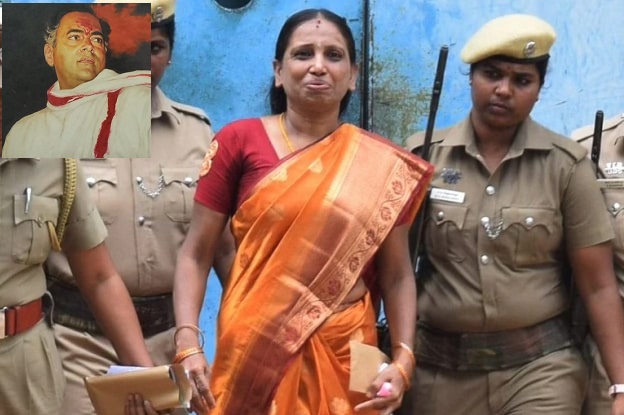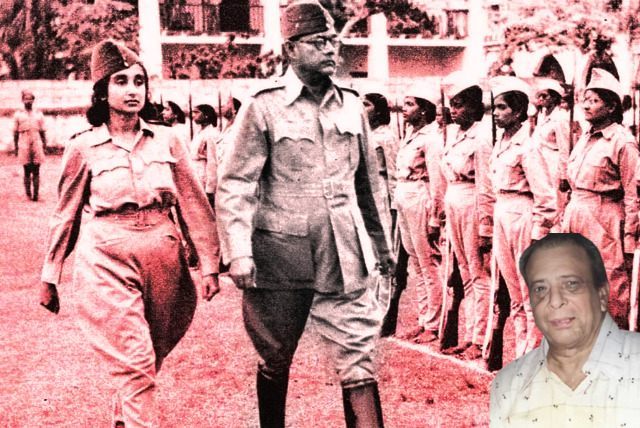
Release of Rajiv’s Assassins–India’s Gordian Knot
When a nation seeks to leave behind its disastrous military involvement in another country and as a consequence, the assassination of its former prime minister, then that is reason enough to pause and think. Without admitting it, India is seeking to purge itself of its role in Sri Lanka in the 1980s. This is evident from the way everyone wants to move on from its worst outcome, the death of Rajiv Gandhi.
Actually, India is struggling to forget two events. His mother Indira Gandhi ordered the attack on the Golden Temple in 1984. Like the Sikh sentiment, the Tamil sentiment was hurt. Both paid with their lives. Mercifully, violence post her assassination against the Sikh community did not get repeated among the Tamils because Rajiv’s killing was seen as a ‘foreign’ conspiracy. Decades on, the two are being consigned to unpleasant history, best forgotten.
Rajiv’s ‘crime’ was that he signed a pact with Sri Lanka’s wily president JR Jayawardane in 1987 and dispatched to the island Indian troops under the banner of the Indian Peace-Keeping Force (IPKF).
From a modest 3,000, this force exceeded 100,000 at one time. But it was unable to tame the Liberation Tigers of Tamil Eelam (LTTE) who, well-armed and highly motivated, enjoyed support from the local Tamil populace, the Tamils across the Palk Strait in India, and the Tamil diaspora in a dozen nations. Their fighters were able to defy both the Sri Lankan forces and the IPKF.
Inevitably, the Indians, trapped by the agreement, got caught in the crossfire between the Tigers and the host government. The triangular tussle – political, diplomatic and military – became India’s Vietnam or the more recent Afghanistan. When the IPKF returned, losing 1,000 soldiers and many maimed, there was no ceremonial welcome.
In the Lok Sabha elections some months on, Rajiv was seen as winning, with prospects of returning to power. A worried LTTE decided that he must die. It succeeded on May 21, 1991. A suicide bomber exploded herself while welcoming him at an election rally. The LTTE itself met a gory end in 2009 when the Lankan forces annihilated an unaccounted number of Tamil fighters, but also unarmed civilians.
Of those involved in Rajiv’s assassination, India’s Supreme Court convicted some to death and some more to life imprisonment. It concluded that the terrorism charge did not stand under the law as it then existed. In the intervening years, however, no effort has been made to update that law in light of terrorism’s global spread that has not spared India. The death sentences were later commuted.
Last month, the court released the last batch of convicts. Finding the convicts’ behaviour ‘satisfactory’, it released them in batches, first in May and the rest last month. The Supreme Court first commuted the death sentence and found it prudent to release them.
ALSO READ: ‘Tamil Identity Is Central To Efforts For Nalini Release’
Among them was Nalini, an Indian who participated in the LTTE-hatched conspiracy. On being released with much fanfare, Nalini showed no remorse. She claimed to be innocent, although various courts convicted her on many of the 250 charges levelled against her.
Witness the cynical political drama. She claimed to belong to a “Congress family”, and that her family members “cried and did not eat for three days” to mourn Rajiv.
But she neither wept nor surrendered to the police after the crime. She was on the run for several days till she was caught with her husband. Old records show all this, but her mushy sentiments went unchallenged, and she was off to London.
She skirted a media question if she planned to meet the Gandhis. Apparently, her political conviction allowed no such courtesies. She and her fellow convicts would not be free but for the Gandhis’ forgive-and-forget stand. The Gandhis sought an end to this saga of bloodletting. Priyanka had a tearful meeting in jail with Nalini some time back. The convicts could have been hanged or imprisoned for life. But no government, including those of the Gandhi-led Congress, ruling for 15 of those 30 years, desired it.
Now, see various players in this gory tale. When India stood defeated, it was a victory for successive Tamil Nadu governments irrespective of political hues. Tamil sentiment, built up against the north historically, played out against the rest of the country. Both national parties, Congress and BJP, have done little to counter it. That explains their silence and the Tamils’ renewed sense of victory on the convicts’ release. It neither conforms to the Congress’ “idea of India” nor to BJP’s “one nation” slogan. For a multi-ethnic nation, this sets the wrong precedence.
Among the Tamil politicians, Jayalalithaa had turned from an angry opponent of the LTTE to its sympathiser since it appealed to the Tamil voters. She outdid the Karunanidhi family to win the state’s two-horse race. It is hardly surprising that Karunanidhi’s son MK Stalin, the current chief minister, commended and received Nalini. He hugged AG Perarivalan, another convict earlier sentenced to death. It is now Stalin’s turn to consolidate the Tamil ‘sentiment’.
New Delhi’s current government, not burdened with Tamil baggage, has maintained silence throughout the entire saga. But it has sought a review of the final judgment, not out of love for the Gandhis, nor to strengthen the law to curb terrorism. Its concern is that the Centre had no role in a case that was pushed by Tamil Nadu. But what did it do when consulted by Gujarat? It cleared the release of those convicted for life in the 2002 rape and murder of the family of Bilkis Bano. The two cases bear similarities, raising the question of whether justice has been done. Minority opinion perhaps, but it exists, that it has not been done.
Although the Gandhis had long ago “forgiven” the killers, Congress has called the Supreme Court verdict “totally unacceptable and erroneous.” It has ‘disagreed’ with Sonia, Rajiv’s widow and its longest-serving president. It is preparing to challenge the verdict. The effort may, in the final run, prove as futile as the one in the Bilkis Bano case, and worse, could get embroiled in politics. Short of allies, Congress needs to keep Stalin and Tamil Nadu on its right side. It’s realpolitik at work.
Nobody has talked of the families of the 14 people who died in the blast that killed Rajiv. These, like any conflict, remain collateral damages, to be silently suffered.
From Prateep Philip, Rajiv’s security detail surviving with a thousand pellets in his body to the highest in the land, each for their own set of reasons, stated or implied, think that this is time and an opportunity to move on. Time has taken its toll and none seems interested in justice that could stir up more problems than solutions.
The writer can be reached at mahendraved07@gmail.com



